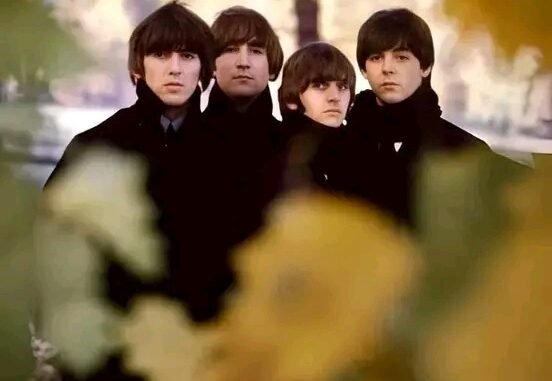
“The Night Before” – A Hidden Gem in The Beatles’ Help! Era
When discussing the musical legacy of The Beatles, the conversation typically centers around the explosive energy of “Twist and Shout,” the innovation of “Tomorrow Never Knows,” or the emotional resonance of “Let It Be.” However, buried within the eclectic tracklist of the 1965 Help! album lies a lesser-known gem: “The Night Before.” Though it never topped the charts or commanded as much attention as other Beatles singles, this song represents a turning point in the band’s musical evolution. Written primarily by Paul McCartney, “The Night Before” is a masterclass in blending pop accessibility with emotional nuance and instrumental experimentation.
From the opening bars, “The Night Before” is instantly catchy, driven by a brisk tempo and a cheerful, bouncing rhythm. Yet, beneath the upbeat exterior lies a story of romantic disillusionment. The lyrics trace the emotional aftermath of a brief love affair—one that seemed real and promising just the night before, only to vanish with the dawn. This interplay between buoyant melody and melancholic narrative became a defining trait of The Beatles’ songwriting as they matured.
A Tale of Two Moods
Lyrically, the song is deceptively simple. McCartney sings, “We said our goodbyes, ah, the night before / Love was in your eyes, ah, the night before.” It’s a tale of swift emotional withdrawal—the kind of heartbreak that leaves one confused and questioning whether the intimacy they felt was ever real. The chorus, repeated with increasing desperation, underscores the central theme of betrayal and loss: “Were you telling lies the night before? Was I so unwise the night before?”
This lyrical contrast is part of what makes “The Night Before” so fascinating. The cheerful delivery masks a deeper sadness, a subtle trick that McCartney would return to in later compositions like “Penny Lane” and “Another Day.” It also reflects a broader shift in pop music of the mid-1960s, where songs started venturing beyond simple love stories to explore more complex emotional territory.
Musical Innovation and Arrangement
Instrumentally, “The Night Before” showcases The Beatles’ willingness to explore new textures and sounds. The song features a prominent electric piano, played by John Lennon—a rarity in the band’s earlier catalog. This choice adds a shimmering, almost psychedelic dimension to the song, softening its edges and enhancing its nostalgic mood. The electric piano provides a melodic counterpoint to George Harrison’s double-tracked lead guitar, which delivers a sharp, almost biting tone that contrasts with the warm vocal harmonies.
The interplay between McCartney and Lennon’s vocals is another standout feature. McCartney takes the lead with clarity and passion, while Lennon provides harmonies that create a sense of tension and depth. Unlike their earlier songs, where harmonies often served to sweeten the melody, here they add to the emotional complexity, emphasizing the singer’s confusion and hurt.
The rhythm section, anchored by Ringo Starr’s steady drumming and McCartney’s fluid bass line, keeps the track grounded and propulsive. There’s an urgency to the performance that mirrors the narrator’s emotional state—frustrated, bewildered, and aching for answers.
Positioned at a Creative Crossroads
Recorded during the sessions for the Help! album, “The Night Before” captures The Beatles at a crucial point in their artistic development. The year 1965 was a transitional period for the band. Still rooted in the Merseybeat pop that launched them to international fame, they were beginning to incorporate more diverse influences into their music—folk, classical, and soul among them. Just months after Help! was released, the band would drop Rubber Soul, widely seen as the beginning of their most experimental phase.
In this context, “The Night Before” serves as a bridge. It retains the catchy hooks and clean production of their early hits, but it also hints at the more introspective and sonically adventurous path they would soon follow. It’s not as overtly groundbreaking as later songs, but it doesn’t need to be. Its strength lies in its subtlety and the way it uses pop conventions to convey deeper emotional truths.
Cinematic Spotlight
It’s worth noting that “The Night Before” was featured prominently in The Beatles’ second feature film, Help!. In the movie, the band performs the song on Salisbury Plain near Stonehenge, surrounded by military tanks—a bizarre and comedic scene that contrasts sharply with the song’s introspective tone. Yet, even in this surreal setting, the song’s emotional core shines through.
The inclusion in the film gave “The Night Before” some visibility, but it never received the radio play or critical attention of other tracks from the same album, such as “Ticket to Ride” or “Yesterday.” In a way, this has preserved its status as a hidden gem, a song discovered anew by each generation of Beatles fans diving deeper than the greatest hits.
Legacy and Influence
While “The Night Before” may not be frequently cited as one of The Beatles’ best songs, it has earned a quiet respect among musicians and fans for its craftsmanship and emotional honesty. It reveals McCartney’s gift for melody and storytelling, even at a young age, and offers a snapshot of a band just beginning to break out of the mold that made them famous.
In retrospect, it’s easy to see how “The Night Before” laid the groundwork for more ambitious ballads and genre-blending tracks that would come in the years ahead. It also demonstrates that even a song that didn’t top the charts or redefine pop music can still be artfully composed, thematically rich, and emotionally resonant.
Conclusion
“The Night Before” stands as a testament to The Beatles’ deepening artistry during a time of transition. It may not roar with the same intensity as “Revolution” or shimmer with the same ethereal beauty as “Here Comes the Sun,” but it hums with something just as powerful—a subtle, sincere reflection of heartbreak, hope, and the complexity of human emotion. And for those who listen closely, that makes it unforgettable.
Let me know if you’d like this edited into a more academic format, blog post, or spoken commentary.
Leave a Reply